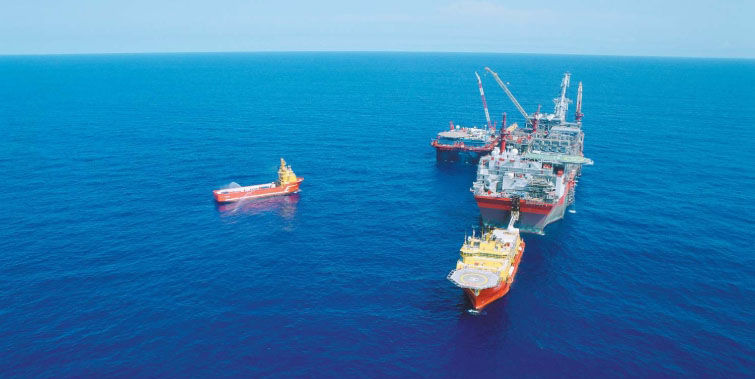CALENDAR
September 29, 2015
Cancelling card doesn’t erase your credit history
September 29, 2015A drop in the number of active offshore platforms and rigs due to falling petroleum prices – already felt close to home – is part of a global phenomenon, federal energy officials say
The fall has been steepest, says a new report from the Energy Information Administration, in the Gulf of Mexico. Nonetheless, big oil companies are still expressing optimism about their deepwater projects.
“In response to the decline in crude oil prices since mid-2014, the number of active offshore rigs has declined worldwide, dropping close to 20 percent – 304 offshore rigs were operating in August 2015, down from 377 in August 2014,” the report states. “During this period, the number of active offshore rigs in the U.S. Gulf of Mexico dropped more rapidly, falling by 46 percent.”
Over the past 15 years, the U.S. Gulf of Mexico’s share of active offshore rigs worldwide has declined significantly – from almost half of all active offshore rigs worldwide in 2000 to less than 20 percent since 2008.
Part of the reckoning involves simple mathematics, when viewed in the context of the U.S. embrace of deep-water drilling.
Advancements in technology encouraged development of drilling in water depths of greater than 1,000 feet. That focus resulted in the departure of rigs that operated in shallow waters.
Natural gas prospects in the U.S. Gulf of Mexico, the report says, have also become less profitable, due to on-shore shale increases, cutting the prices of U.S. natural gas.
The Macondo well blowout and the ensuing disaster caused an already declining number of rigs to fall, reaching a low point of 19 in Gulf of Mexico waters, the report says.
The rig count recovered, however, and by December 2014 the number stood at 57; but it has fallen again, according to the latest numbers, currently standing at 33 Gulf of Mexico rigs.
Overseas, meanwhile, there was significant growth in the years 2000 to 2006 in the Asian Pacific, the Middle East and south of the U.S. border through South America.
“The expansion of offshore drilling in India and China largely accounted for the growth in offshore rigs in the Asia Pacific region,” the report states. Offshore Middle East rigs from Qatar and Iran grew in the early part of this century. After 2006 Saudi Arabia was a more substantial presence.
Angola and Nigeria are responsible for African growth after 2010.
“Angola has more than 10 offshore oil projects expected to come online within the next five years,” the report states. “Nigeria’s offshore activities have been focusing on the deepwater and ultra-deepwater; at least three deepwater projects are in development and are projected to come online within the next five years.”
Local business and government leaders say the greatest cushion for the local oil and gas service industry during its steady fall has been deepwater related as well.
Royal Dutch Shell announced in July what it calls a “final investment decision” to move ahead with the Appomattox deep-water development project in the Gulf of Mexico.
That means the company and its partners are installing what will be their eighth and largest floating platform in the Gulf, with hopes of 175,000 barrels of oil to be produced each day once on line.
“We have again delivered a globally competitive investment scope for another significant deepwater project,” said Marvin Odum, Shell Upstream Americas director. “Appomattox opens up more production growth for us in the Gulf of Mexico, where our production last year averaged about 225,000 barrels per day, and this development will be profitable for decades to come. With its competitive cost and design, Appomattox is next in our series of deepwater successes.”
Royal Dutch Shell project off the coast of Nigeria continues, although federal energy officials say that region – like the U.S. – is also experiencing a downturn, just not as quickly as the U.S. Gulf of Mexico.








